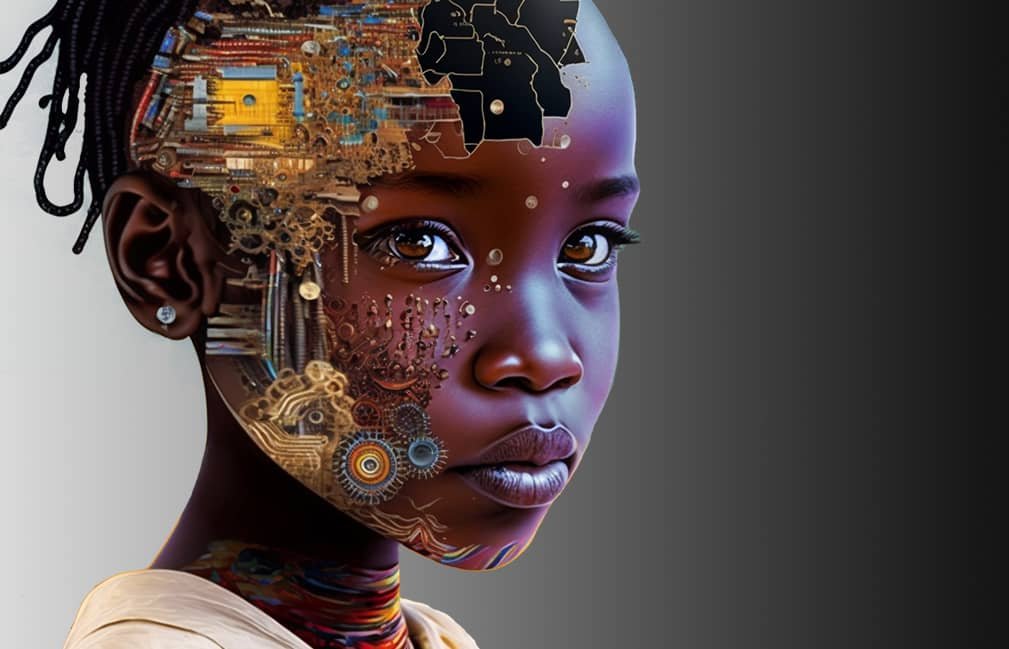By Samuel Shay, Co-Founder of Africa Publicity and Production (AP&P)
Africa, a continent brimming with potential, recognizes the crucial role of education in its development trajectory. However, the continent faces a shortage of qualified teachers, hindering its ability to provide quality education for its growing population. To address this challenge, innovative approaches are needed to enhance teacher training and support, and artificial intelligence (AI) emerges as a transformative tool with the potential to revolutionize teacher development.
The Significance of Effective Teacher Training and Support
Effective teacher training and support are fundamental pillars of a robust education system. Teachers play a pivotal role in shaping the minds and futures of young learners, and their expertise and dedication are essential for ensuring quality education. Yet, teachers in Africa often face challenges in accessing ongoing training and support, limiting their ability to stay abreast of pedagogical advancements and adapt to the diverse needs of their students.
AI-powered solutions present a promising avenue to address these challenges and elevate teacher training and support in Africa. AI’s ability to analyze vast amounts of data, personalize learning experiences, and provide real-time feedback can revolutionize the way teachers are trained, supported, and empowered.
AI-Driven Approaches to Teacher Training and Support
AI can be harnessed to enhance teacher training and support in diverse ways:
1. Personalized Learning: AI-powered platforms can tailor training programs and resources to the specific needs and learning styles of individual teachers. This personalized approach ensures that teachers receive the most relevant and impactful training, catering to their unique strengths and areas for development.
2. Adaptive Feedback and Coaching: AI can provide real-time feedback on teaching practices, analyzing classroom interactions, student progress, and teacher self-assessments. This continuous feedback loop enables teachers to identify areas for improvement and refine their instructional strategies in real time.
3. Access to Resources and Expertise: AI can facilitate access to a vast repository of educational resources, including lesson plans, teaching strategies, and subject-matter expertise. This readily available knowledge base empowers teachers to enhance their teaching repertoire and stay updated on the latest pedagogical advancements.
4. Virtual Communities and Collaboration: AI can foster virtual communities of practice where teachers can connect, share experiences, and collaborate on professional development initiatives. This peer-to-peer learning environment promotes continuous learning and knowledge exchange among teachers.
5. Language Translation and Support: AI-powered translation tools can break down language barriers, providing teachers with access to training and resources in their native languages. This linguistic support ensures that all teachers can benefit from professional development opportunities, regardless of their language proficiency.
Real-World Examples of AI-Powered Teacher Training
The potential of AI in teacher training and support is already being realized through innovative initiatives across Africa:
In Ghana, a pilot project utilizes AI to provide personalized feedback and coaching to teachers. The AI system analyzes classroom video footage and provides teachers with detailed feedback on their teaching practices, helping them identify strengths and areas for improvement.
In Kenya, an AI-powered platform offers a comprehensive online teacher training program, providing teachers with access to tailored learning modules, interactive simulations, and real-time support from experienced mentors. This accessible and flexible approach caters to the diverse needs of teachers across the country.
In Nigeria, an AI-based language translation tool is being developed to translate educational resources into local languages, making them accessible to teachers in diverse linguistic communities. This initiative promotes inclusive education by ensuring that all teachers have access to quality training materials.
Overcoming Challenges and Fostering Sustainable Impact
While AI holds immense promise for enhancing teacher training and support in Africa, it is crucial to address potential challenges and ensure sustainable impact:
1. Access to Technology:
Bridging the digital divide is essential for ensuring that AI solutions reach teachers across Africa. Investments in infrastructure, connectivity, and digital literacy training are necessary to create an enabling environment for AI-powered teacher training.
2. Data Privacy and Security: Protecting teacher data and ensuring ethical AI practices are paramount. Clear data governance frameworks and robust cybersecurity measures must be implemented to safeguard teacher privacy and foster trust in AI-powered solutions.
3. Cultural Sensitivity and Context Awareness: AI systems must be developed with sensitivity to African cultures and educational contexts. Collaborative efforts with local educators and stakeholders are essential to ensure that AI solutions align with local needs and pedagogical practices.
Empowering African Educators, Transforming Education
AI presents a transformative opportunity to revolutionize teacher training and support in Africa, empowering educators to enhance their skills, refine their practices, and deliver quality education to all learners. By harnessing the power of AI responsibly and addressing potential challenges, we can create a future where African teachers are equipped with the knowledge, support, and tools they need to transform education and shape the continent’s bright future.








